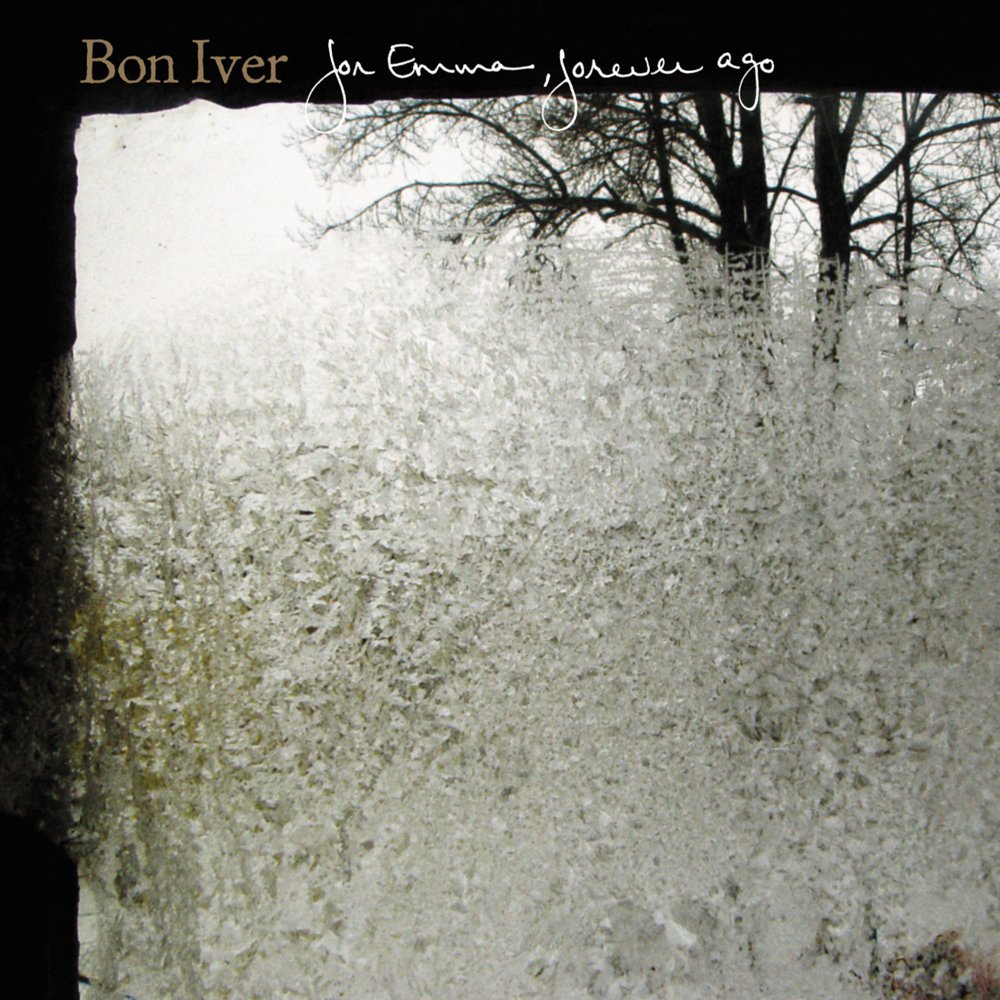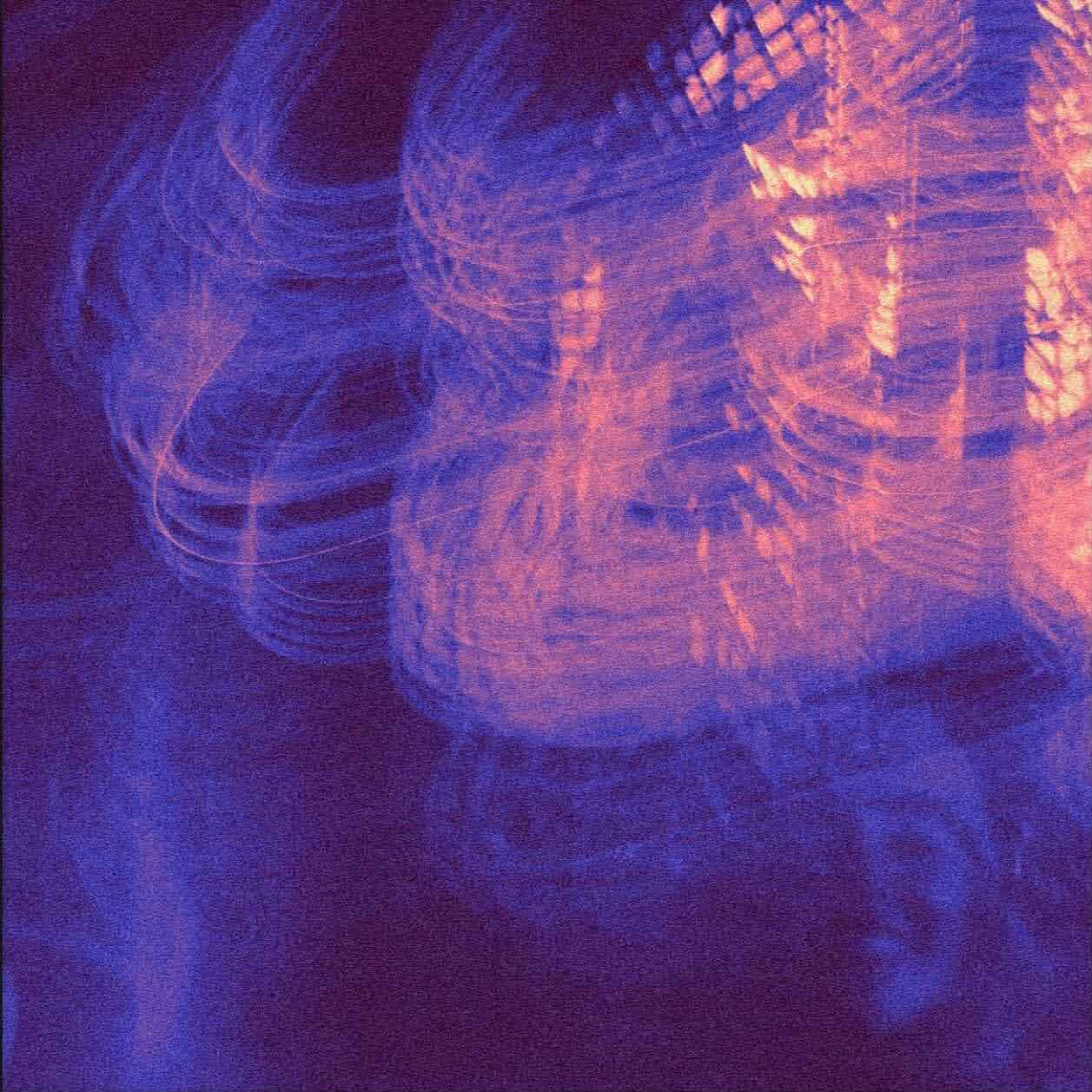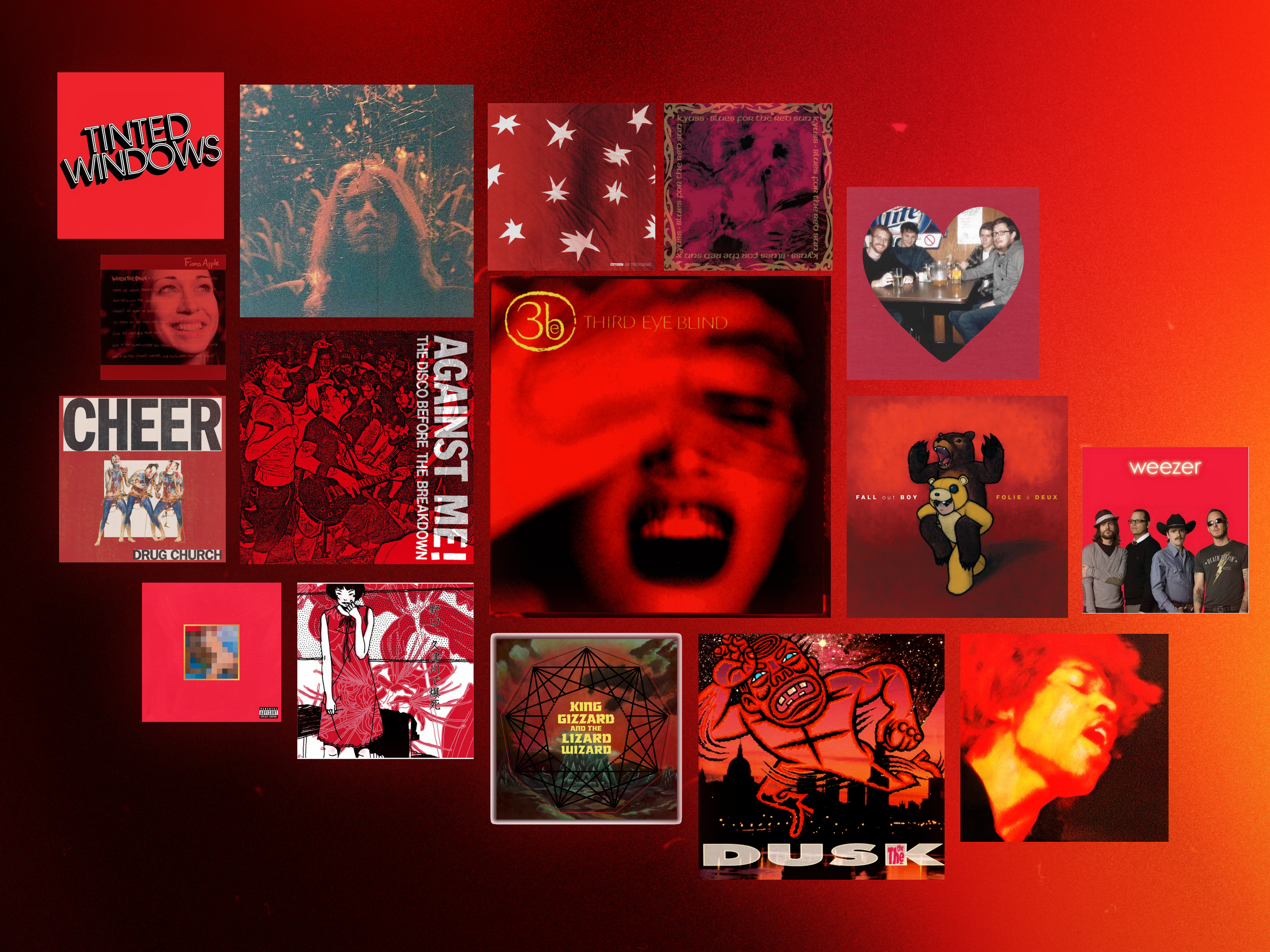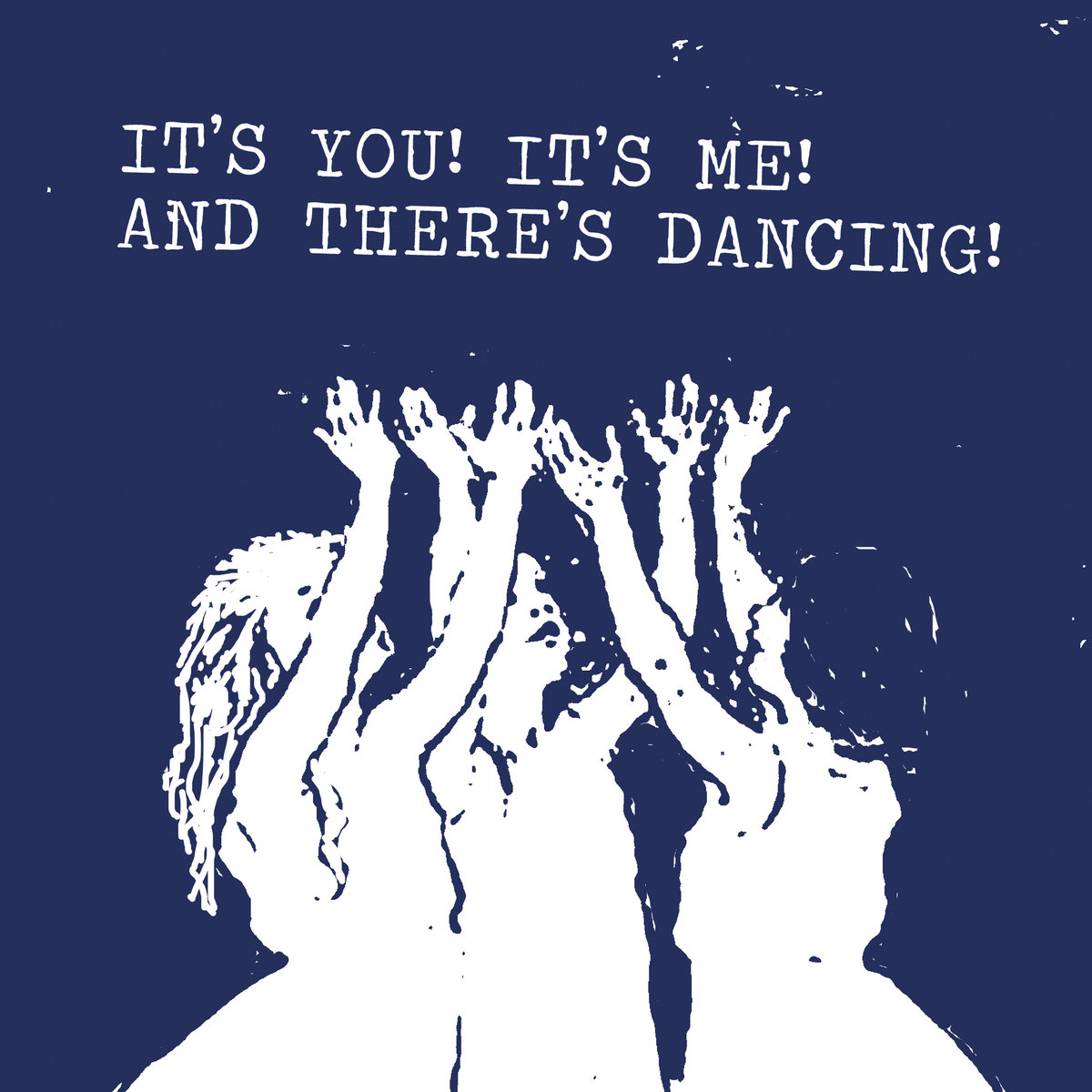Gateway Indie
/On May 20th of 2008, my musical taste changed forever. We (or at least I) tend to discover things in waves. Specifically waves of increasingly-tiered obsession that escalate until I can focus on one thing and one thing only. I’ll find a song I really like, devour the album that it came from, read everything on the band’s Wikipedia page, explore their discography, listen to side projects, see them live, spend exorbitant amounts of money on limited edition vinyl, then (apparently) write about my experience years later.
One of the most important steps in my particular brand of hyper-obsessive fandom is delving deeper into the genre of the band who I’ve recently discovered. Whether it’s simply to contextualize their sound, see if I recognize any of their contemporaries, or just to get a better understanding of the world’s musical history. When one artist’s discography isn’t enough, sometimes the next logical step is to start absorbing everything in their immediate vicinity. It’s a beautiful notion that one album can open the door to a whole new world of music that was previously hidden. It’s how you diversify as a music listener and as a person.
Up until high school, I’d really only explored the genres of classic rock, grunge, and some metal. All pretty standard stuff, especially for a white suburban teen, but it was all music that came out before I was born. In 2008 I discovered a group of albums that opened my eyes to the ever-cool world of indie and, more importantly, paved the way for my interest in both the genre and the contemporary music scene as a whole. As each of these albums near their 10th anniversary I realized that not only have many of them achieved “classic” status within the genre, they were also part of a larger movement for my generation.
Universality
Now that the internet has paved the way for services like iTunes, Spotify, Soundcloud, and Bandcamp, music has become more insular than ever. In 2017 there are entire sects of fans who can be hyper-devoted to one artist or scene that may never intersect with anyone else. Additionally, with the rise of social platforms like forums, Twitter, and reddit fans can live in a bubble… and while it’s great to connect with other fans, it also means the vocal obsessives are more walled-off.
We have fewer “universals” than ever before. Ed Sheeran is one of the best-selling artists in the world right now, but I don’t think I’ve heard a single song of his. Drake is breaking records every week, but if you don’t care about hip-hop, he’s pretty easy to avoid listening to. It’s a byproduct of the ever-splintering media landscape that we’re living in.
So there are positives and negatives, but this splintering is relevant because those “universals” will become fewer and far between as we move forward. Looking beyond music, you have shows like Game of Thrones which is one of the most technically popular and most-talked about shows currently on TV. It consistently shatters its own self-set viewership records, numbers which are worth screaming about in 2017, yet would have gotten a show canceled even 20 years ago. There’s just more to watch, more to do, and more to care about in 2017, so if you don’t want to watch Game of Thrones, you truly don’t have to. This isn’t the 20’s where everyone gathers around the radio for the day’s episode of Little Orphan Annie. I feel like I’m getting off track, but music is this phenomenon multiplied by thousands. Not only are there dozens of alternatives mediums vying for your attention, practically anyone can create music in 2017. There are more alternatives (and therefore fewer commonalities) than ever before.
I feel like we will reach (or perhaps have already hit) a point where there are simply no more universal artists. There’s never going to be another Beatles. Obviously. But looking purely at The Beatles on a scale purely based on audience and cultural impact, there will never be another musical group in the history of the world that reaches the omniscient presence that the Beatles achieved. There were fewer artists to listen to then, fewer ways to create music, and even fewer avenues to discover new music.
As technology has improved, we’ve seen a direct impact on the music industry as an entity. At the same time, we’ve also seen artists effectively harness this power. Groups like Odd Future were pervasive and forward-thinking enough that I (a high school-aged non-hip-hop listener) knew who they were and knew at least a few of their songs. While everyone’s musical journey is a unique story filled with personal discoveries that have influenced their taste, this is really a story about the first universal that I was a part of as it was happening.
I Miss the Old iTunes
Back when iTunes was still relatively new, it was my only source of current music. I would almost instantaneously drain any gift card I was given, using it to cross several songs off my carefully-curated iTunes wish list. I was also fortunate enough to have my Dad’s massive collection of nearly one thousand CD’s at my disposal, but as you could imagine, most of those albums were a decade old at least. That’s why I was a rock fan first: ease of access.
But I always found ways to satiate my hunger for new music. From VH1 to renting CDs one by one from the local library, there were only so many ways to hear new music, even in the mid-2000’s. One of the most unexpected avenues that I took advantage of was the (now sadly-defunct) iTunes Single of the Week Program, which offered exposure to countless contemporary acts one song at a time. It may not have been much, but this program turned me onto dozens of artists and sounds that I wouldn’t have heard otherwise. Through this mishmash of mid-2000’s media, I was able to satiate my budding hunger for new music as a penniless 14-year-old.
That brings us back to the first sentence of this post.
Unbeknownst to me, indie folk was blowing up In 2008. Bon Iver’s For Emma, Forever Ago was gaining serious traction a year after its release thanks to the album’s breakout hit “Skinny Love” and in May “Skinny Love” was put up as iTunes’ free song. As with most songs in the program, I’d never heard of the artist, nor had any experience with the genre, but I downloaded it anyway because that’s how hungry I was for new music.
I downloaded the track (no doubt on my family’s bulky oversized 2005 laptop) and synced it onto my iPod immediately. I was floored. I’d never heard anything so delicate. It was catchy (especially for a folk song) but it also had a soft warmth and reserved delivery that was a revelation to me at the time. “Skinny Love” evoked a feeling that was unlike any other music I’d ever heard. I had to have more.
Part of the beauty of the Single of the Week program was how random it was. One week it’d be an electropop song, the next it would be something folky like Bon Iver, and then it would be a latin song. I didn’t necessarily like it all (quite the opposite, in fact) but I listened to it all for the sake of discovery. The fact that these songs were free was just the icing on top of the cake. I had nothing to lose.
I had no idea at the time, but indie folk saw a massive explosion in popularity in 2008 with the rise of acts like Bon Iver and Fleet Foxes, who both released stunning debuts around this time. I didn’t realize that this era of indie had been such a widespread phenomenon until I saw people discussing Bon Iver’s For Emma, Forever Ago on its tenth anniversary calling it their “Gateway Indie” album. I liked that phrase, but I didn’t think much of it until I heard the ineffable deep_cuts youtube channel cite both For Emma and Fleet Foxes as “dominating adolescent MP3 players the world over” at this time. Maybe it was just his worldly UK accent, but something clicked for me. I realized this was not only a formative album, era, and sound for myself, but for everyone my age.
Beyond Folk
Later that year I met some of the coolest people in my high school. And by that I don’t mean cool in the traditional sense, they were dork-ass nerds like me, but they were dork-ass nerds with impeccable musical taste. At this point, the edgiest thing I had ever listened to was Nine Inch Nails, but these guys opened my mind to the larger world of indie music. Genres I didn’t even know existed. Sounds I could barely conceive of. This was 10th grade and the albums they showed me would go on to become some of my favorite and most formative of all time.
The first song I remember them playing for me was the opening track to Portugal. The Man’s first album Waiter: “You Vultures!” which was titled “How the Leopard Got Its Spots.” I’m going to stop there for a second just to point out this band/album/song combo was (before hearing the first note) already more experimental and out-there than anything else I’d ever heard up to that point.
“How the Leopard Got Its Spots” is a pokey unpredictable song that almost borders on prog. While Portugal. The Man changes up their sound every album, their debut is easily the most experimental of their discography, still retaining many characteristics of the band’s post-hard predecessor Anatomy of a Ghost. But I didn’t know any of that at the time. I just listened to the song, enraptured by the track’s grungy guitars that paired perfectly with Gourley’s shrill high-pitched singing. The lyrics were obtuse in a Relationship of Command-type way and the final glitched-out chorus haunted me for days after the fact, becoming an immovable earworm. I remember at the time Grand Theft Auto IV had just been released (God, take me back) and I’d spend hours tooling around the game’s gray city listening to this song on repeat for hours.
Sometime later, Eric (the one of the group who I was closest to) and I found ourselves sitting next to each other during a weirdly-placed mid-day homeroom period. I asked him what he was listening to and he said “I’ll show you” he handed me his headphones and hit play on his 3rd generation iPod Nano. What I heard were the first shimmering notes of Minus The Bear’s “Pachuca Sunrise.” The song’s carefully-times guitar taps and intensely-technical drumming provide the crunchy background for Jake Snyder’s laid-back sensual lyrics and Cory Murchy’s smooth flowing bassline. It gelled into a transformative experience that made my body feel warm with sunlight and love. There’s a reason it’s still one of the band’s most-played live songs even a decade later. It turns out “Pachuca Sunrise” was many people’s first Minus The Bear song and led countless fans to the group’s second album Menos El Oso.
At this point, I already had enough “material” to go off on my own and endlessly devour these two records from these two very different bands. And I did, but I was also hungry for more. I came back to this group of guys in our shared AV class and begged for more in the coolest way I could without discounting my own cred.
From there Eric, Oliver, and Max threw me into the deep end. They showed me “Death Rides a Horse” by instrumental band Russian Circles. I dug it. Ratcheting up the intensity, they moved onto “Laser Life” by the post-hardcore band Blood Brothers. I dug it. They then threw the hyperchaotic cybergrind “Chapels” by Genghis Tron at me. I didn’t dig it, but I warmed up to it pretty quickly.
While there were dozens of other acts and songs that these guys turned me onto over the course of the next year, this crop stands out in my mind both for its breadth and what they’ve gone on to represent for me personally.
Portugal. The Man would go onto become one of my favorite bands. I’ve often proselytized online that they have one of the best discographies in indie rock. I would also go on to expose this band to my two younger brothers, and for one of them, Portugal. The Man has become their favorite band of all time. They currently sit at my 8th most played band on Last.fm with just over 3,000 plays.
Minus the Bear was my favorite band for years. At 6 concerts they’re also far-and-away the band I’ve seen live the most, and two years ago I saw them play Menos El Oso in full for the album’s 10th-anniversary tour. The album’s closing track “This Ain’t a Surfin’ Movie” has been my favorite song of all time since I first heard it. The band is currently my 6th most-listened band on Last.fm, and three of the band’s albums are have made it onto my list of all-time favorites.
Russian Circles would eventually lead me to the world of post-rock and instrumental metal. Bands like Explosions in the Sky, Mogwai, and Earth, all of whom have served as my reading and studying music throughout high school and college. Russian Circles also have a nearly-perfect discography, and they currently sit at #15 on my Last.fm.
Meanwhile, Fleet Foxes were always a bit boring to me… until this year. Maybe I have more patience at 24 than I did at 15, but I’ve had their discography on repeat for this entire summer and I’ve been loving it.
Most importantly, Bon Iver served as my gateway to all of this. It’s weird that a slow quiet folk album could pave the way for something as discordant and brutal as Genghis Tron, but I guess it’s a snowball effect type of thing. For Emma, Forever Ago also became somewhat of a soundtrack for my first real relationship, and despite that relationship’s rocky conclusion a year later, I can still listen to the album today and enjoy it as much as I did the first time hearing it.
I can’t thank these three dudes (and the creators of these albums) enough. I can safely say that my life would be unequivocally and vastly different without having gone through this period of exploration when I did. I would be a different person with different tastes and interests entirely. Full stop. So for that, I can only say “thank you” and hope that I returned the favor with someone else somewhere down the line. Sometimes discoveries come from the most unexpected places. Sometimes a random song can lead you down a path you never could have blazed yourself. Sometimes a single song can change everything.





